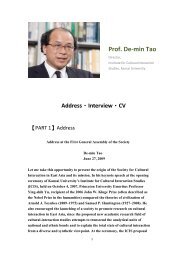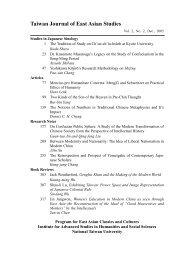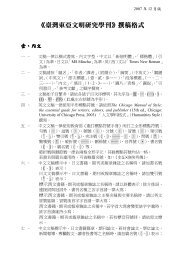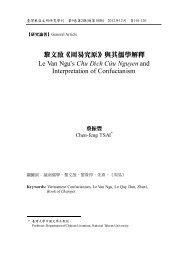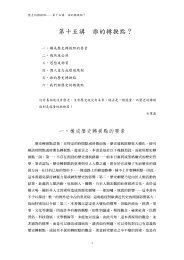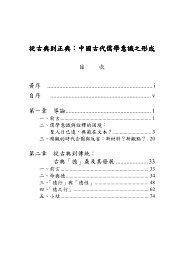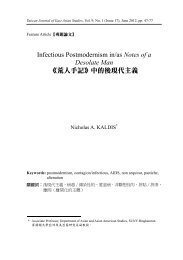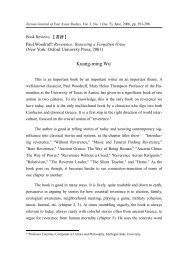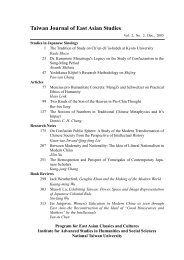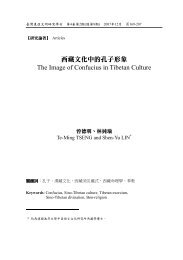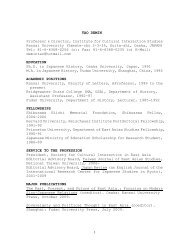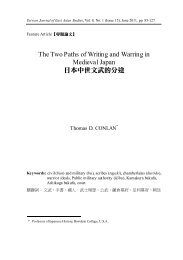臺灣東亞文明研究學刊 - 東亞經典與文化研究計畫 - 國立臺灣大學
臺灣東亞文明研究學刊 - 東亞經典與文化研究計畫 - 國立臺灣大學
臺灣東亞文明研究學刊 - 東亞經典與文化研究計畫 - 國立臺灣大學
Create successful ePaper yourself
Turn your PDF publications into a flip-book with our unique Google optimized e-Paper software.
黃 俊 傑鄡 中 日尤 文尠 化 交岾 流却 史屰 中 「 自 我 」 與弌 「 他 者 」 的 互 動 : 類讅 型勨 及 其 涵 義 87<br />
Abstract<br />
This paper is an attempt at identifying the types of tension in the interactions<br />
between the "self" and the "others" in East Asia as a "contact zone" in the period<br />
between seventeenth and twentieth century. Special attention is devoted to the<br />
political and cultural aspects in the clashes between the "self" and the "others" in<br />
modern China and Japan.<br />
Four types of tensions between the "self" and the "others" in East Asia can be<br />
observed, namely, (a). the tension between "political self" and "cultural self" as<br />
manifested in Yamazaki Ansai (1618-1682); (b). the tension between "cultural self"<br />
and "cultural others" as seen in Itō Jinsai (1627-1705) and Oyū Sorai (1666-1728);<br />
(c). the tension between "political self" and "political others" as seen in Li<br />
Chunseng (1834-1924) in the early years of Japanese colonization in Taiwan (1895-<br />
1945) and (d). the tension between "cultural others" and "political others" as<br />
revealed in the Japanese sinilogists Naitō Konan (1866-1934) and Uno Tetsuto<br />
(1875-1974).<br />
It can readily be observed that China stands out as the "inevitable other" in the<br />
cultural and political interactions among East Asian countries in modern times.<br />
However, many East Asian intellectuals fail in distinguishing clearly the "China" as<br />
an imagined community from the "China" as reality. It is also observed that in the<br />
complex interactive processes in cross-cultural context, the "cultural self" was of<br />
primal important and played the most fundamental role.<br />
iii



